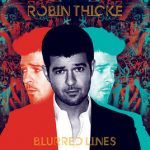The Need to Educate the Nonlegal Public About Lawyers and the Legal System
 Just over fourteen months have passed since I first appeared in a Milwaukee County courtroom as a newly minted (Marquette) lawyer. Rolling the clock back another two and a half years, I recall my first few days as a law student. In all, I’m nearly four years into what I hope will be a long and eventful career in the law.
Just over fourteen months have passed since I first appeared in a Milwaukee County courtroom as a newly minted (Marquette) lawyer. Rolling the clock back another two and a half years, I recall my first few days as a law student. In all, I’m nearly four years into what I hope will be a long and eventful career in the law.
Over these last four years—this last year, in particular—I’ve found myself often making the same two observations. Though I don’t suspect that either of my observations are especially unique, both are surely the product of spending so many of my days in and around our state’s most active courthouse.
The first of these observations is one I began to consider very early on during my time at Marquette: we (society in general, but lawyers and others inside the legal system more specifically) must do more to educate and inform all those individuals who too often lack even the most rudimentary understanding of what it means to be a nation of laws.


